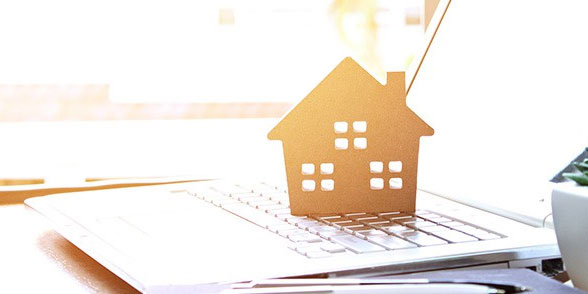You may borrow more money if you own your house. How come, you ask? Because you have a valuable asset, you may be able to get a loan against it. This allows you to borrow significantly more significant sums over a more extended period.
However, like with any form of borrowing, there are a few things to consider. As a primer, we'll address the question, "What is a homeowner loan?" and go over the advantages and disadvantages.
Loans for Homeowners Explained
The borrower's primary residence secures this type of loan, which serves as collateral for the borrowed funds. Their house serves as a guarantee, which lowers the lender's risk but raises the borrower's risk, as they might lose their home if they default on the loan.
Second-charge mortgages may be referred to as homeowner loans. The lender might repossess loans based on the equity you have in your house if you don't pay them back, even if they have different names.
What is a House Loan?
Obtaining a large quantity of money for home upgrades, large expenditures, or debt consolidation is a common reason people resort to homeowner loans.
Amounts of more than £10,000 and payback durations of up to 25 years are typical with these loans. Depending on your financial situation and the amount of equity you have in your house, you may get a different amount of money from other lenders.
When it comes to borrowing money, the amount of equity you have is limited. According to a recent survey, lenders are only willing to lend up to the value of the home that you currently own, which in this case is £120,000.
A Home Loan's Benefits and Disadvantages

One of the most important financial choices you'll ever make is purchasing a home. And qualifying for a home loan might make it much more critical. A long-term mortgage loan can be a substantial financial burden for someone in the middle class.
It is imperative that you thoroughly analyze and review all parts of your finances before deciding whether or not to take out a loan to return the amount for so long.
Advantages of a Mortgage
Raising the Affordability of Housing
With a home loan, an ordinary middle-class paid individual may afford to buy a house of their own. Approval or denial of the loan application depends on the applicant's credit score and capacity to repay the loan.
The lenders will promptly accept your application if you have a steady income and can repay the EMIs (equated monthly installments).
Financial Development
The price of real estate in India has steadily increased over the last few decades. According to many analysts, the capital appreciation of real estate holdings has been far more than the interest you pay on your house loan over the years.
Suppose you take out a loan of 10 lakh rupees at 10% interest, and the value of your property rises by 20% before you pay back the loan. In this case, your capital gain will be greater than the interest you paid.
Compulsory Saving Method
There are both positive and negative aspects to getting a house loan. Ultimately, it's your decision how you handle it. It's hard to resist the urge to spend when you've got money in your pocket. With a stable salary but no savings to speak of, taking out a house loan is the most incredible option for you to save money.
The Disadvantages of a Home Loan
Big Commitment
You're signing a long-term contract with the bank when you get a house loan. Between 10 to 30 years is the average length of a house loan.
Because of this, you'll be saddled with a debt for a long time. As soon as the loan is in place, you will have to start watching you’re spending and putting effort into paying it back.
Risks Of Home Loan
Typically, a house loan lasts between 10 and 30 years, an extended period. Several unanticipated events may occur within this time frame. You may find it challenging to pay back the loan in some of these situations.
Divorce, sudden sickness, job loss, and accidents may all throw your finances into disarray, causing you to lose your home if you cannot make payments on your loan.
Risk of Investment
One of the most ignored drawbacks of a house loan is the interest rate. Even if the loan amount is large or little, or the repayment period is long or short, as long as you are paying back the loan, you are forfeiting an opportunity to invest the same amount in a financial instrument that may provide you with significant returns. As an alternative to the EMIs, you might put the money in mutual funds or a fixed deposit and reap the benefits over time.








